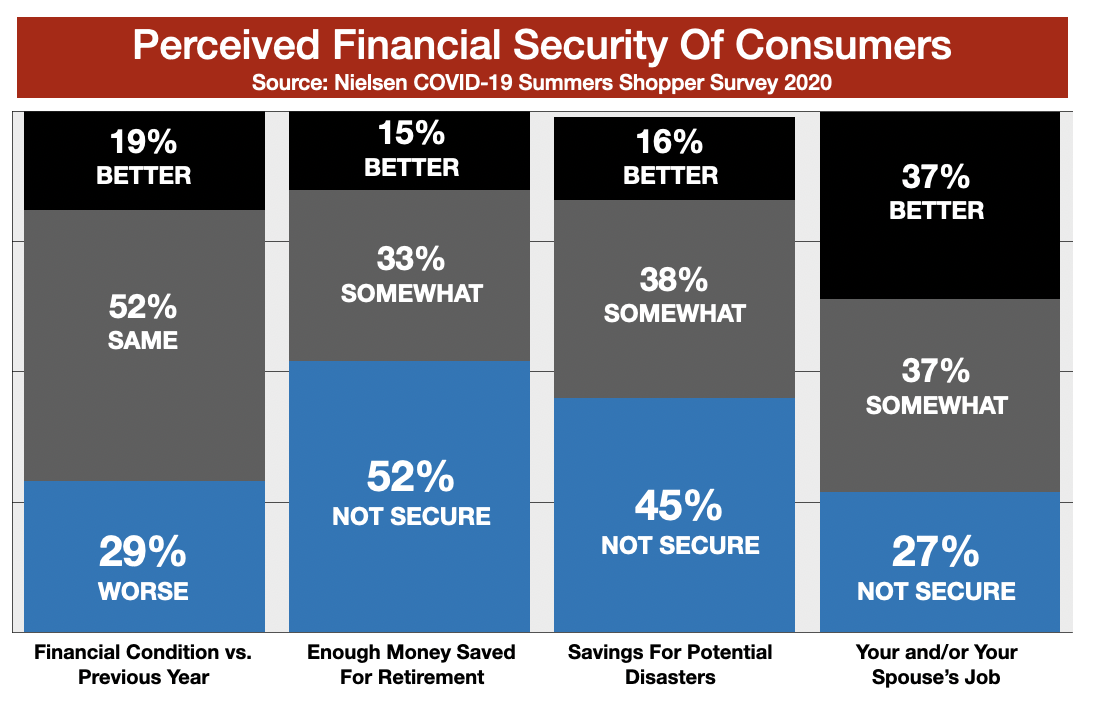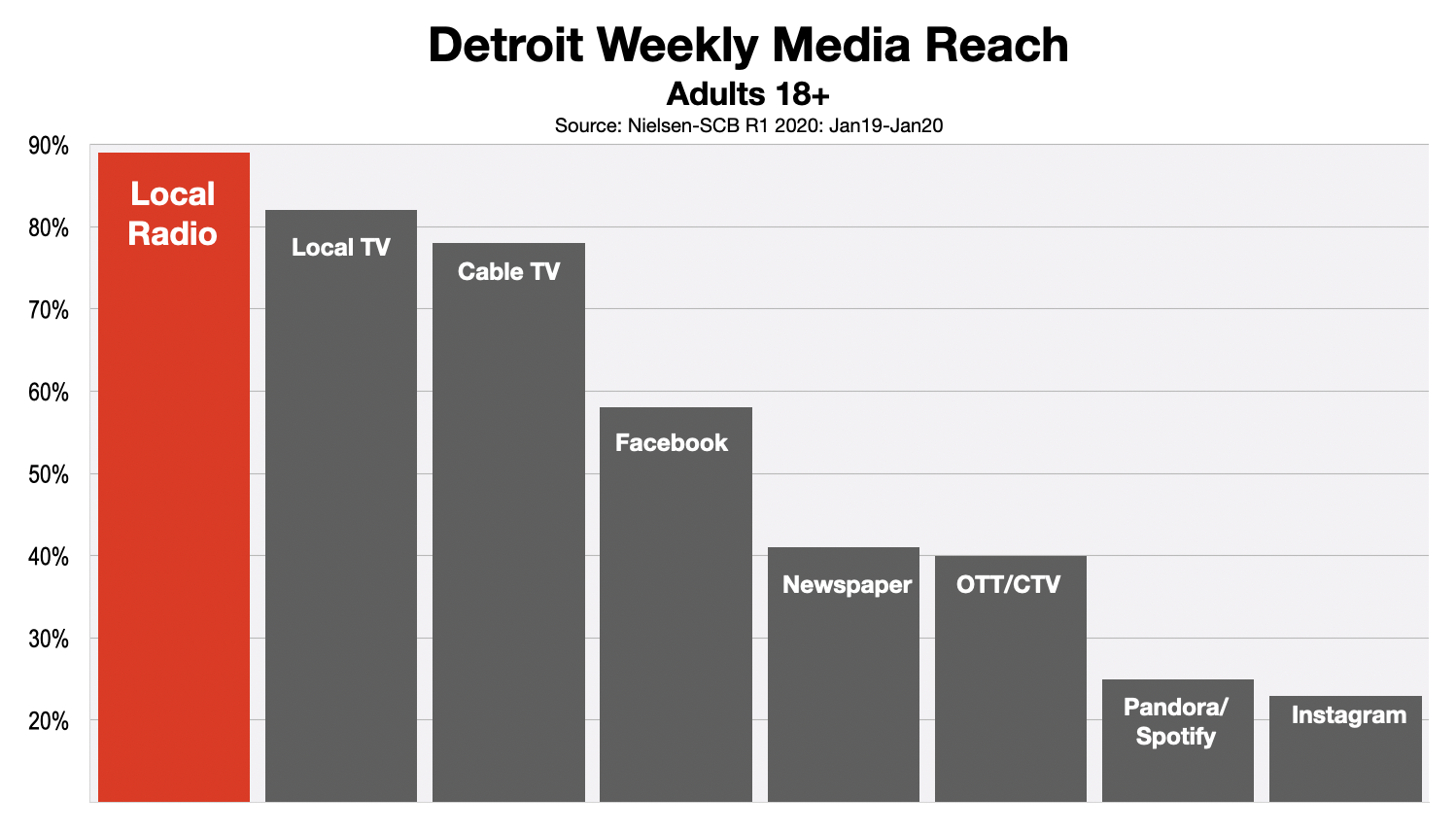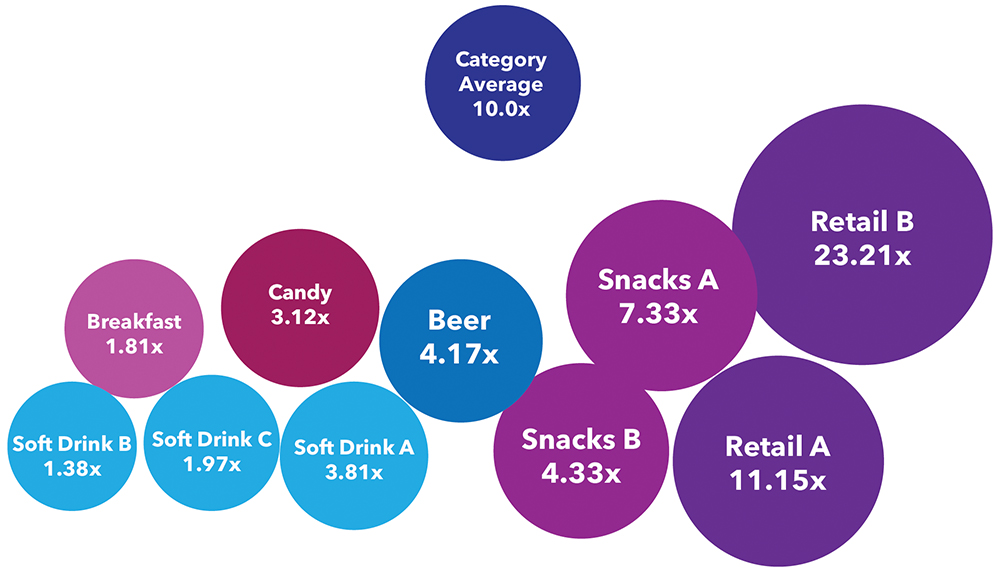 There are over 3.5 million adult consumers in the Detroit area. Collectively, in a typical year, these shoppers would generate $78.3 billion in retail sales. This money would be spent on cars, shoes, fast-food, entertainment, groceries, mattresses, adult beverages, haircuts, makeup, and an over-abundance of other of goods and services. Their money was being spent on both the essential and the frivolous.
There are over 3.5 million adult consumers in the Detroit area. Collectively, in a typical year, these shoppers would generate $78.3 billion in retail sales. This money would be spent on cars, shoes, fast-food, entertainment, groceries, mattresses, adult beverages, haircuts, makeup, and an over-abundance of other of goods and services. Their money was being spent on both the essential and the frivolous.
The way Southeast Michigan consumers spend money changed radically in March as COVID-19 began to spread. Six months into the pandemic, shopping strategies are about to change again.
It started with panic buying. Consumers began ignoring prices and were paying what was ever necessary to ensure the safety, health, and comfort of their families. According to Nielsen, this sudden spike in demand caused widespread price increases. To put it in perspective, retail prices shot-up in 64% of all product categories stocked in grocery stores.
Almost immediately, advertising messages from local retailers shifted from promises of low prices and convenience to product availability and shopper safety.
Based on new research from Nielsen, consumers' shopping strategies are beginning to shift again. This will require Metro Detroit small business owners and retailers to also change their advertising strategies, too.

"Shoppers have been primarily driven to make purchases based on health and safety concerns throughout the pandemic. However, a second layer of consumption behavior has been emerging from those experiencing (and anticipating) financial restraint," says Nielsen.
In the Detroit area, for instance, the unemployment rate surged from 5.4% in March to 26.5% in May before backing off to 12.4% in July. Nationally, according to the University of Michigan Index, in September, consumer sentiment remains 25% below where it was at the end of 2019.
Unemployment concerns and sagging confidence, according to Nielsen, have left a large percentage of consumers feeling far less secure about their financial health.
Nielsen finds that those consumers who are either somewhat or not secure in their financial conditions are developing new shopping strategies that make their dollars stretch further They accomplish this by seeking discounts and promotions, shopping at stores with lower price points, and cutting back on luxury items.
To attract these less-secure consumer segments, Nielsen suggests that retailers and small business owners "need to make it easier to find information on deals and lower prices, and assist consumers in making their purchases last longer".
"In-store promotions and sales on essential items will increasingly entice consumers to shop brick-and-mortar given their locality and wide array of options. Consumers who need to do more with less will search for the best value," says Nielsen.
"Communication is key," says Nielsen. It's not enough just for retailers to simply reassess pricing and promotional strategies. Shoppers need to be made aware of the value stores are offering and the steps business owners are taking to keep customers safe from viral exposure.
By any metric, advertising on Detroit radio is the best way to reach local shoppers.
Every week, according to Nielsen, Detroit radio reaches more adult consumers than all other media available to local small business owners and retailers.
Also, according to more than 20 advertising return-on-investment studies conducted by Nielsen, for every $1000 invest in commercials on local radio, retailers and small business owners can expect, on average, a $10,000 lift in sales.
Radio Advertising ROI By Brand Category
Source: Nielsen
AdAge, a trade magazine for advertising professionals, calls these types of return "eye-popping". The magazine goes on to say radio's ROI is superior to commercials on TV, online, and social media.
Regardless of which advertising media a local retailer uses to communicate to financially constrained consumers, Nielsen says there are valuable long term benefits to the business owner.
"Newly constrained and cautious shoppers will become loyal to retailers who have helped them learn a new shopping strategy that saves them money and keeps them healthy."
More Advertising Advice For Detroit Small Business Owners
- How Detroit Small Business Owners Can Boost 2020 Holiday Sales
- Metro Detroit Retailers Expect Sweet Halloween In 2020
- Metro Detroit Small Business Update: Auto Parts Sales Accelerate
- Banks and Credit Unions Reach ReFi Customers On Detroit Radio
- Now Open: Political Advertising Window on Detroit Radio
- Advertising In Detroit: OTT & CTV Viewing Soars






